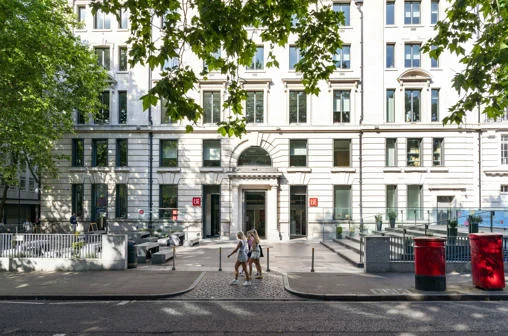Overview
Introduction
We welcome research students from other universities to spend from one term up to one academic year at LSE as a Visiting Research Student (VRS).
The VRS scheme allows students who are registered as doctoral researcher at other institutions to participate in research activities in the department and the School, to interact with other research students, and to benefit from the expertise of LSE faculty, the training offered by the PhD Academy, and LSE Library facilities. Note that Visiting Research Students don’t have access to any LSE taught courses.
We welcome applications that complement the academic interests of faculty members in the department and we recommend that you investigate their research interest before applying. Once you have found an academic whose research interests are relevant to your own you should contact them directly, outlining your proposed area of research, to see if they’ll agree, in principle, to act as an advisor during your time at LSE.
As a VRS, you won’t be able to take accredited or examined courses or be fully supervised in the same way as an LSE doctoral student. You’ll be able to participate in doctoral workshops and research seminars, interact with other doctoral students, and discuss your research with your nominated advisor. You’re expected to be self-funded.
Because of its emphasis on independent research, the VRS scheme is better suited to students who are at an advanced stage in their doctoral training and research.
Why study with us
Discover more about our students and department.
Meet the department
Our department is highly regarded both nationally and internationally – ranked second for Geography in the QS World University Rankings 2025.
Here at LSE, we offer a unique opportunity to study geography in a university with a worldwide reputation in the social sciences. We specialise in economic, urban and development geography, environmental social science and climate change, all with a strong emphasis on real-world applications.
Many of our academics are internationally renowned in their fields. You’ll find a good balance of experienced and younger academics in the department. Within the team, we’ve had three holders of the highly prestigious Philip Leverhulme Prize Fellowships for researchers under the age of 36.
Our research is interdisciplinary and international in its scope and we work closely with academics from several other departments at LSE. Teaching staff are active within the following research centres:
- Cañada Blanch Centre for Contemporary Spanish Studies
- Centre for Climate Change Economics and Policy
- Centre for Economic Performance
- Grantham Research Institute on Climate Change and the Environment
- LSE London
- Middle East Centre
- Saw Swee Hock Southeast Asia Centre
- Transition Pathway Initiative Centre
- What Works Centre for Local Economic Growth
Based in the heart of London opposite Lincoln’s Inn Fields, the department offers a lively, welcoming and supportive community for students and staff.
Learn more about our undergraduate, postgraduate and PhD study opportunities, as well as our research.
Why LSE
University of the Year 2025 and 1st in the UK in 2025 and 2026
Times and The Sunday Times - Good University Guide 2025 and 20261st in London for the 14th year running
The Complete University Guide - University League Tables 20266th in the world for the study of social sciences and management
QS World University Rankings by Subject 20256th in the world for leading the way in social and environmental sustainability
QS World University Rankings: Sustainability 2026Your application
Overview
To apply as a visiting research student, you apply in the same way as for our MPhil/PhD programmes, with the same entry criteria. Find the entry criteria for the MPhil/PhD Environmental Economics.
We welcome applications for research programmes that complement the academic interests of our staff at LSE. For this reason, we recommend that you take a look at our staff research interests before applying.
We carefully consider each application and take into account all the information included on your form, such as your:
- academic achievement (including existing and pending qualifications)
- statement of academic purpose
- references
- CV
- outline research proposal
- sample of written work.
See further information on supporting documents.
You may need to provide evidence of your English language proficiency. See our English language requirements.
We’ll assume all applications are for a 12-month visit commencing in September unless the applicant indicates otherwise in the application.
Competition for places at LSE is strong. So, even if you meet the minimum entry requirements, this does not guarantee you an offer of a place.
However, please don’t feel deterred from applying – we want to hear from all suitably qualified students. Think carefully about how you can put together the strongest possible application to help you stand out from other students.
Fees and funding
The table of fees shows the latest tuition fees for all programmes offered by the School.

